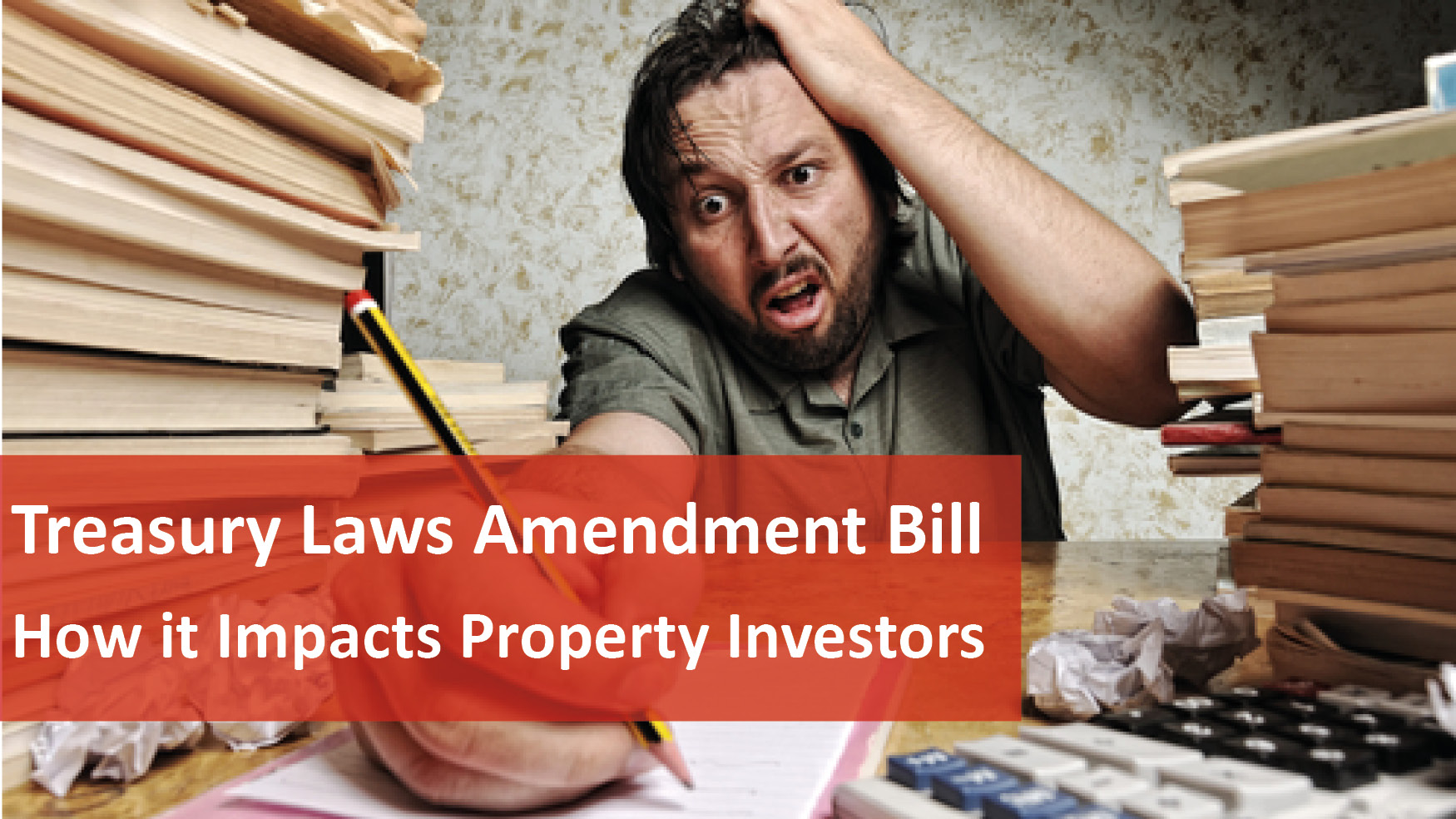
Treasury Laws Amendment Bill & It’s Impacts on Property Investors
The Treasury Laws Amendment (Housing Tax Integrity) Bill 2017 was introduced into parliament on September 7, 2017 and included legislation changes which will negatively affect residential property investors across Australia.
Announced in the 2017 Federal Budget, the amendment denies tax deductions for the decline in value of ‘previously used’ or ‘second hand depreciating assets’ (plant and equipment) found within residential investment properties.
The new legislation will limit plant and equipment depreciation deductions to only those outlays actually incurred by investors in residential properties and those who purchase brand new investment properties.
This change will have a major impact on investors; essentially reducing the annual deductions they can claim which in turn, reduces their cash return each year.
This could lead to investors being in a tighter financial position and may discourage investors from purchasing second hand residential properties in the future.
From July 1 this year, the depreciation of acquired second hand or previously used plant and equipment assets will be reflected in the cost base for capital gains tax purposes.
However, existing investments will be spared.
Property owners who exchanged contracts to purchase their property before May 9, 2017 can continue to claim a deduction for depreciation on the plant and equipment items within the property until either the investor no longer owns the asset, or the asset reaches the end of its effective life.
The Draft Bill went to public consultation in August which saw the public and key stakeholders voice concerns about the severity of the changes and the negative effect on housing affordability.
There were also proposals outlining alternative options (put forward by industry stakeholders) which were designed to satisfy the integrity issue of claims being made in excess of an assets value without extinguishing a legitimate deduction for property investors.
The good news is that investors who purchase brand new properties or new plant and equipment assets for a residential investment property can continue to claim a depreciation deduction over the effective life of the asset.
However, subsequent owners of a property will be unable to claim the deduction for depreciation of plant and equipment assets.
The capital works deduction, which makes up 85 to 90 per cent of the total depreciation claim for residential investors will not be affected.
Residential property investors will still be able to claim capital works deductions, also known as building write-off, including any additional capital works carried out by a previous owner.
These changes make it as important as ever for property investors to utilise Quantity Surveyors to find and correctly claim, every single deduction they are entitled to.
If you have any questions about your investment property, contact us to hear from our friendly and knowledgeable team.
(View our source here)

